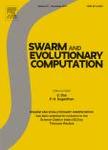版权所有:内蒙古大学图书馆 技术提供:维普资讯• 智图
内蒙古自治区呼和浩特市赛罕区大学西街235号 邮编: 010021

作者机构:Dr BR Ambedkar Natl Inst Technol Dept Math & Comp Jalandhar 144008 India
出 版 物:《SWARM AND EVOLUTIONARY COMPUTATION》 (群与进化计算)
年 卷 期:2024年第88卷
核心收录:
学科分类:08[工学] 0812[工学-计算机科学与技术(可授工学、理学学位)]
基 金:National Institute of Technology Jalandhar Ministry of Education Government of India
主 题:Evolutionary algorithms Ranking-based mechanism Offline learning Mutation operator Large-scale Transportation
摘 要:The fixed -charge transportation (FCT) problem, an extension of the classical transportation problem, holds significance in practical logistics scenarios where fixed charges play a crucial role. Fixed charges categorize it as an NP -hard problem, posing challenges for conventional methods due to their inefficiency, high computational costs, and susceptibility to local optima. This paper introduces an enhanced evolutionary algorithm, offline learning -based competitive swarm optimization (OLCSO), tailored to address the FCT problems efficiently. OLCSO draws inspiration from offline learning, where particles benefit from the experiences of high performers. The algorithm incorporates (i) a ranking -based mechanism where losers learn from peer -to -peer winners based on their ranks, (ii) a two-phase cooperative evolutionary mechanism enhancing searchability and convergence of the algorithm. In the first phase, losers learn from personal best experiences and the shifted center of the population, boosting diversity. In the second phase, losers learn from winners and the center of the population, improving exploitation, (iii) a mutation strategy is embedded to update winner locations in each evolutionary procedure, and (iv) to ensure a feasible solution to FCT problems, the paper also introduces negative and fractional repair mechanisms. OLCSO is applied to solve two sets of FCT problems, linear and non-linear. Experimental results are compared with various heuristic and metaheuristic techniques, commonly used for these problems, using diverse metrics. A comparative analysis of OLCSO s design elements is also conducted. The results demonstrate OLCSO s superiority over existing algorithms.